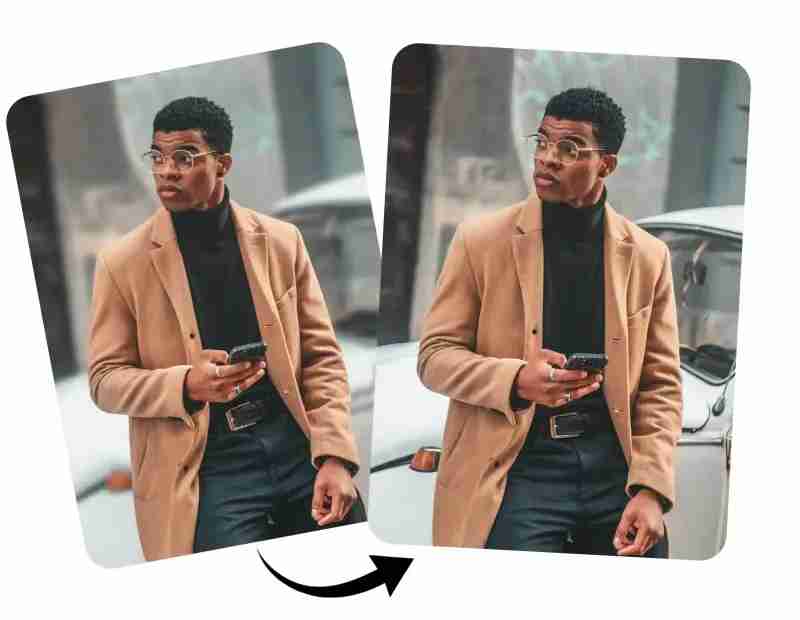
Understanding Image Blur
What Causes Image Blur?
Image blur can occur due to several reasons, and understanding these can help prevent future mishaps. Common causes include camera shake, incorrect focus, and low light conditions. I remember a time when I was at a friend's wedding, trying to capture the bride's beautiful entrance. In my excitement, I didn't realize my hands were shaking slightly, resulting in a blurred image. It was a lesson learned the hard way about the importance of steady hands and proper focus.
Types of Blur
There are primarily two types of blur: motion blur and focus blur. Motion blur happens when the camera or subject moves during the exposure, while focus blur occurs when the camera fails to focus correctly on the subject. Visual aids can help illustrate these differences, showing how motion blur creates streaks and focus blur results in a soft, out-of-focus image.
Techniques to Unblur Image
Basic Editing Tools
Most smartphones and computers come equipped with basic editing tools that can help unblur images. These tools often include sharpening features that enhance the edges and details of a photo. Here's a step-by-step guide to using these tools:
- Open your image in the editing app.
- Locate the sharpening tool, usually found under 'Edit' or 'Adjust.'
- Gradually increase the sharpening level until the image appears clearer.
- Save the edited image.
Advanced Software Solutions
For more complex blurring issues, advanced software like Adobe Photoshop and GIMP can be invaluable. These programs offer sophisticated tools that allow for precise adjustments. For instance, Photoshop's 'Smart Sharpen' feature lets you control the amount, radius, and noise reduction, providing a tailored approach to unblurring.
Online Tools
If you prefer not to download software, online tools like PicWish Photo Unblur offer convenient alternatives. These platforms allow you to unblur images directly from your browser. A case study of using an online tool might involve uploading a blurred image, selecting the desired level of sharpening, and downloading the improved version—all within minutes.
Unblur Image Online: Pros and Cons
Advantages of Online Tools
Online tools are accessible and easy to use, making them popular among casual users. They often require no technical expertise and can be used on any device with internet access. Popular tools like Fotor and Enhance.Pho.to offer features such as batch processing and automatic adjustments, making them efficient for quick fixes.
Limitations and Challenges
However, online tools can have limitations, such as potential quality loss and privacy concerns. Images uploaded to these platforms might not retain their original quality, and there's always a risk of data breaches. To mitigate these issues, consider using tools that prioritize user privacy and offer high-resolution outputs.
Best Practices for Unblurring Images
Choosing the Right Tool
Selecting the appropriate tool depends on factors like the type of image, the level of blur, and the desired quality. For instance, if you're working with a high-resolution landscape photo, a tool like Photoshop might be more suitable than a basic online editor. I once had to choose between several tools for a project, and after some trial and error, I found that GIMP offered the best balance of features and ease of use for my needs.
Maintaining Image Quality
Preserving image quality during the unblurring process is crucial. This involves understanding technical aspects like resolution and file formats. Always work with the highest resolution available and save images in lossless formats like PNG to prevent quality degradation.
Common Challenges and Solutions
Dealing with Severe Blur
Severe blur can be challenging to fix, but not impossible. Techniques such as deconvolution algorithms can help restore details in heavily blurred images. Case studies of successful unblurring often involve using multiple tools and techniques to achieve the best results.
Balancing Sharpness and Natural Look
Over-sharpening can lead to unnatural-looking images. To avoid this, aim for a balance between clarity and realism. Practical advice includes using subtle adjustments and comparing the edited image with the original to ensure a natural appearance.
Implementation Guide: Step-by-Step
Preparing Your Image
Before starting the unblurring process, ensure your image is ready. This includes checking the resolution, cropping unnecessary parts, and adjusting the brightness and contrast. A checklist can help ensure optimal results.
Using a Blur to Clear Image Converter
Tools like blur to clear image converters simplify the unblurring process. Here's a detailed guide:
- Upload your image to the converter tool.
- Select the desired level of sharpening.
- Preview the changes and make adjustments if necessary.
- Download the final image.
Screenshots and examples can illustrate each step, making it easier for readers to follow along.
Conclusion
In conclusion, unblurring images is a skill that can enhance both personal and professional photography. By understanding the causes of blur and using the right tools and techniques, you can transform blurred images into clear, memorable ones. I encourage you to experiment with different methods and share your experiences and tips in the comments below.



